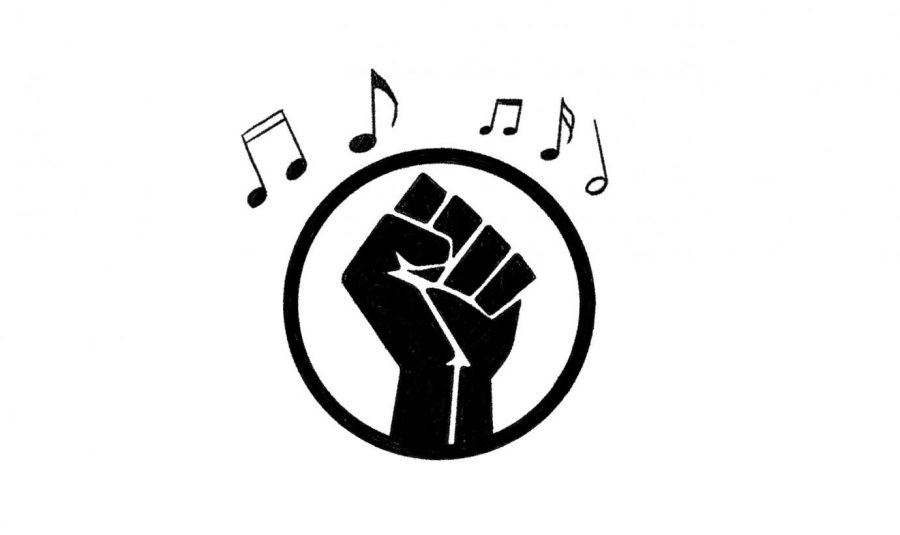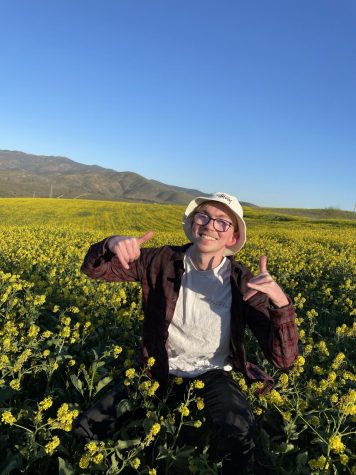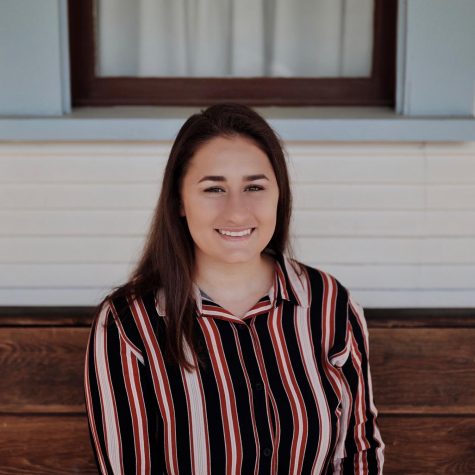Protesting and music have long overlapped in the United States, dating back to the days of 20th-century union strikes and Billie Holliday’s poetic rendition of “Strange Fruit.”
Most notably when it comes to R&B, rock, and rap, there’s always been a roaring feeling of urgency in protest music. With the rise of Black Lives Matter, it’s been no different. Songs like “Hell you Talmbout” by Janelle Monae, Kendrick Lamar’s “Alright” and Black Thought’s “Rest in Power” perfectly encapsulate long-held feelings of staunch disapproval towards America’s highest leadership.
The BLM movement has existed since 2013, following the controversial acquittal of George Zimmerman in the shooting of Trayvon Martin, and it has encompassed the pain, outrage, and determination of millions of African-Americans into collective action. Their actions have started conversations in favor of defunding and abolishing police departments, providing proper assistance to victims of systemic racism, and prosecuting police officers who abuse and murder civilians.
Many songs released in 2020 were inspired by the surge of Black Lives Matter protests following the death of George Floyd. These songs contain strong political messaging and describe a brutal daily reality for Black people across the nation.
In celebration of Black History Month, here are several songs that embody Black pride and usher in a potent sign of the times.
Beyoncé – “Black Parade”
There’s no time for mourning on Beyoncé’s “Black Parade.” Released on Juneteenth as a nonprofit charity single, Beyoncé’s uplifting ode radiates pride for her home state of Texas and preaches unity while energetically chiding racist police officers. The song’s release was accompanied by the creation of Black Parade Route, a directory of Black and African-owned businesses spanning beauty, fashion, and agriculture.
Like much of her music in the past decade, “Black Parade” is emphatically pro-Black and pays tribute to her past, while encouraging protesters to keep marching on and remember the path laid before them. As a celebration of Black tradition, Beyoncé namedrops legendary Black musicians and revolutionaries along with current activists, proving their legacies have not been left behind.
“Curtis Mayfield on the speaker (Woo) / Lil’ Malcolm, Martin mixed with mama Tina (Woo) / Need another march, lemme call Tamika (Woo) / Need peace and reparation for my people (Woo)”
It’s hard not to walk away from this song feeling at least a little bit exalted and proud, but the volatile power of Beyoncé’s music should come as no surprise.
Lil Baby – “The Bigger Picture”
“The Bigger Picture” sees Lil Baby drift into vivid, socially conscious territory. Though he’s previously rapped about social issues and his insecurities, the Atlanta rapper swings big in his first direct address at a major societal problem. Baby’s honest recollection of life as a Black man is jarring, as he addresses the fear of living in constant paranoia of police. He’s become accustomed to knowing to never take his chances, even when he’s done nothing wrong.
“I see blue lights, I get scared and start runnin’ / That shit be crazy, they ‘posed to protect us / Throw us in handcuffs and arrest us / While they go home at night, that shit messed up”
The song’s cover portrays Lil Baby on his bike at the forefront of a June 8th BLM protest in downtown Atlanta. While leading the protest, he guided protesters to city hall and spoke to his fellow Georgians about police violence, certifying himself as a true leader of his community.
Noname – “Song 33”
An infamously outspoken critic of patriarchy, capitalism, and white supremacy, Noname wraps up many of her critiques neatly into three concise but scathing verses on the striking Madlib-produced “Song 33.” As a rebuttal to J. Cole’s “Snow On Tha Bluff,” a song where he weaponized his insecurities, “Song 33” turned the attention back to the protests and specifically to the tragic death of Olawutoyin Salau. The Tallahassee BLM activist was found dead on June 13th, a week after her Twitter thread about being sexually assaulted by a member of her community went viral. Referring to Salau, as well as the shocking number of Black women being targeted nationwide, Noname mourns the numerous ones left behind.
“One girl missin’, another go missin’ / One girl missin’, another.”
H.E.R. – “I Can’t Breathe”
“I Can’t Breathe” is an achingly descriptive depiction of generational suffering through the lens of a true artist. H.E.R. guides this emotional rollercoaster with polished vocals and compassionate grace. The track ends solemnly with a resounding spoken word passage where she criticizes the desensitization of Black violence by the media while ignoring none of the pain.
“You are desensitized to pulling triggers on innocent lives / Because that’s how we got here in the first place / These wounds sink deeper than the bullet / Your entitled hands could ever reach.”
Leon Bridges feat. Terrace Martin – “Sweeter”
On “Sweeter,” Leon Bridges trades in his vintage soul sound for contemporary r&b and it suits him perfectly. On this track, he pleas for better treatment and a life that’s “sweeter” where prejudice is no longer an issue. Bridges manages to sum up the impact of racism’s everlasting and inescapable effect on him, his friends and family. His conclusion is that no matter what he does to combat hate, he is stuck in a never-ending cycle.
“Hoping for a life more sweeter / Instead I’m just a story repeating / Why do I fear with skin dark as night? / Can’t feel peace with those judging eyes”
Terrace Martin & Denzel Curry feat. Kamasi Washington, G Perico & Daylyt – “Pig Feet”
“Pig Feet,” which refers to the denomination “pig” for a police officer, is a beautiful expression of someone’s raging instincts in a moment of crisis. Produced by Terrace Martin and featuring a standout guest appearance from superhuman jazz saxophonist Kamasi Washington, this song couldn’t sound any more immediate. Beginning with a skit marked by ringing gunshots and a distraught woman yelling for someone to help her son, the song surges to a height of blinding ferocity. Rappers Denzel Curry and Daylyt trade unapologetic verses over passionate and demanding production that holds your intention for three emphatic minutes. This infectious collaboration is hopefully the first of many, and is certainly a politically-charged anthem that deserves to be played at dangerously loud levels.













